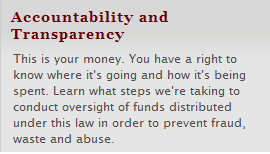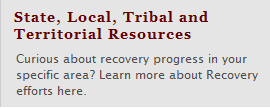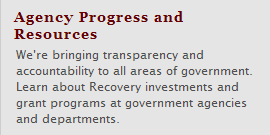To provide the Department of the Interior meaningful and timely feedback, the Interior Office of Inspector General (OIG) is engaged in reviewing the Department's early planning and implementation activities. To date, the OIG has issued eight advisory reports to help ensure accountability of the approximately $3 billion appropriated to the Department.
The advisories offer observations on early efforts to develop project lists in the Department and its bureaus, as well as strategies to reduce the risk of fraud, waste, abuse, and poor performance. For example, leveraging existing monitoring mechanisms for overseeing funding awarded through federal assistance agreements will be a crucial first step. Single audits -- which are mandatory reviews of entities that received federal assistance funds -- offer one such mechanism, provided the audits include Interior's Recovery Act programs in their scopes. Other steps can also be taken such as strengthening policies to prevent suspended and debarred entities from receiving federal assistance, holding senior leadership accountable for the results of Recovery Act activities, ensuring consistency in project list classifications, and developing and strengthening risk-based approaches.
- Tightening Controls to Prevent Suspended and Debarred Entities from Receiving Recovery Act Funds
- Holding Senior Executives and Managers Accountable for Recovery Act Activities
- Risk Assessments of Department Recovery Act Activities
- Risk Assessments of Recovery Act Recipients
- Single Audits of Recovery Act Programs
- Recovery Act Activities and the Compliance Supplement for Office of Management and Budget Circular A-133
- Lack of Clarity on Certain Project Elements in Department Recovery Act Guidance
- Observations on Initial Project Lists







